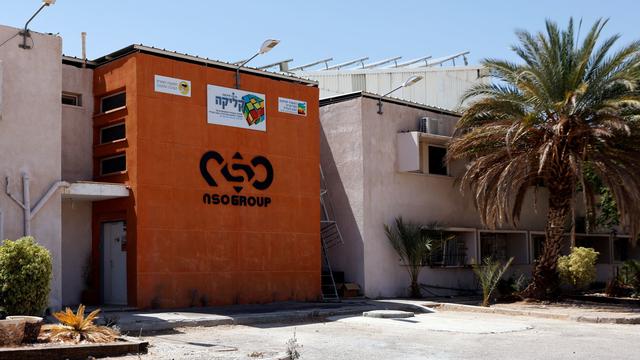The human rights organization Human Rights Watch said that the targeting of one of its prominent employees with spying software "Pegasus" underscores the urgent need to regulate global trade in surveillance technology.
And called on the countries of the world to ban the sale, export, transfer and use of surveillance technology until human rights guarantees are implemented.
Lama Fakih, Director of the Crisis and Conflict Division and Director of the Beirut Office at Human Rights Watch, was targeted with the Pegasus spyware 5 times between April and August 2021.
Pegasus is spyware developed and sold by Israel-based NSO Group. The software is surreptitiously installed on cell phones, and once installed on the device, it can be turned into a powerful monitoring tool through full access to the camera, calls, photos, videos, microphone, email, text messages, and other features, allowing the target person and their contacts to be monitored. .
"NSO Group spyware is being used by governments to monitor and silence human rights advocates, journalists, and others who reveal abuse," said Debra Brown, senior digital rights researcher and advocate at Human Rights Watch. And she stressed that "allowing her to work with impunity, in the presence of conclusive evidence of violations, not only undermines the efforts of journalists and human rights organizations to hold those in power to account, but also exposes those trying to protect them to grave danger."
The targeting of Human Rights Watch by Pegasus adds to the ever-growing list of human rights activists, journalists, politicians, diplomats, and others whose computers have been hacked with spyware in violation of their rights.
A few days ago, the Israeli newspaper Haaretz said that it had obtained a confirmed list of all the victims targeted by the Israeli-made Pegasus spy program, including 34 Al-Jazeera journalists.
The newspaper stated that the list of confirmed victims of the program includes individuals from several countries, including journalists, media professionals, jurists, jurists, activists and political figures, as well as Mexican drug lords.
In July 2021, a joint project coordinated by Forbidden Stories - a non-profit media organization based in Paris - and with technical support from Amnesty International; It was reported that the Pegasus software was used to infiltrate the devices of dozens of activists, journalists, and opposition figures in multiple countries. The joint venture identified potential clients for NSO in Azerbaijan, Bahrain, Hungary, India, Kazakhstan, Mexico, Morocco, Rwanda, Saudi Arabia, Togo and the UAE.
During the past three months alone, investigations revealed that Pegasus was used to infiltrate the devices of 6 Palestinian human rights activists, 4 Kazakh civil society activists, 11 US embassy officials in Uganda, two Polish opposition figures, and a member of an independent United Nations human rights investigation team in Yemen, a human rights activist in Bahrain, a human rights activist in Jordan, and 35 journalists and civil society members in El Salvador, among others.
